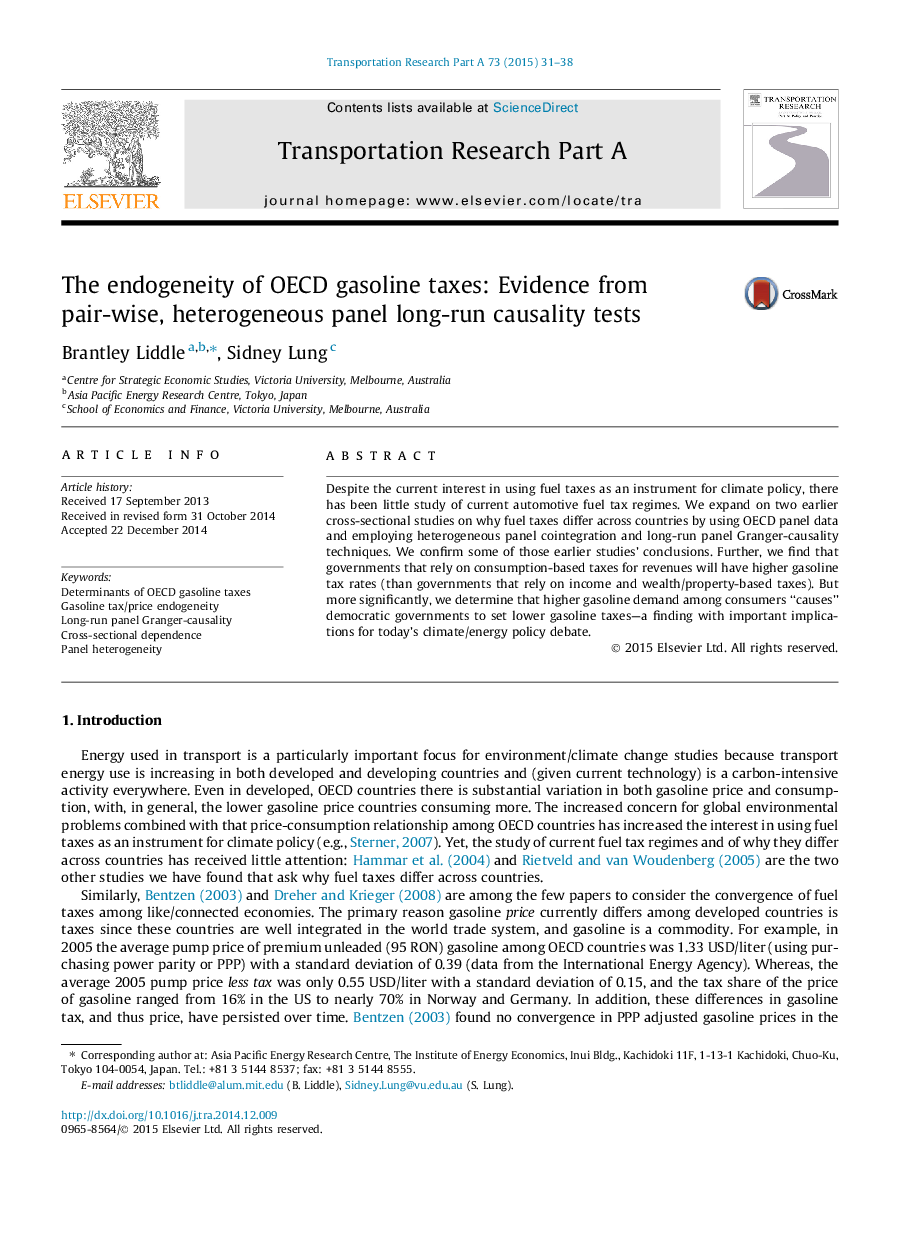| Article ID | Journal | Published Year | Pages | File Type |
|---|---|---|---|---|
| 311474 | Transportation Research Part A: Policy and Practice | 2015 | 8 Pages |
•We employ heterogeneous long-run panel Granger-causality tests.•Higher gasoline demand Granger-causes governments to set lower gasoline taxes.•Governments that rely more on consumption-based taxes have higher gasoline tax rates.•Governments view gasoline taxes as simply another revenue source.•Gasoline pump price less gasoline tax does Granger-cause gasoline demand.
Despite the current interest in using fuel taxes as an instrument for climate policy, there has been little study of current automotive fuel tax regimes. We expand on two earlier cross-sectional studies on why fuel taxes differ across countries by using OECD panel data and employing heterogeneous panel cointegration and long-run panel Granger-causality techniques. We confirm some of those earlier studies’ conclusions. Further, we find that governments that rely on consumption-based taxes for revenues will have higher gasoline tax rates (than governments that rely on income and wealth/property-based taxes). But more significantly, we determine that higher gasoline demand among consumers “causes” democratic governments to set lower gasoline taxes—a finding with important implications for today’s climate/energy policy debate.
